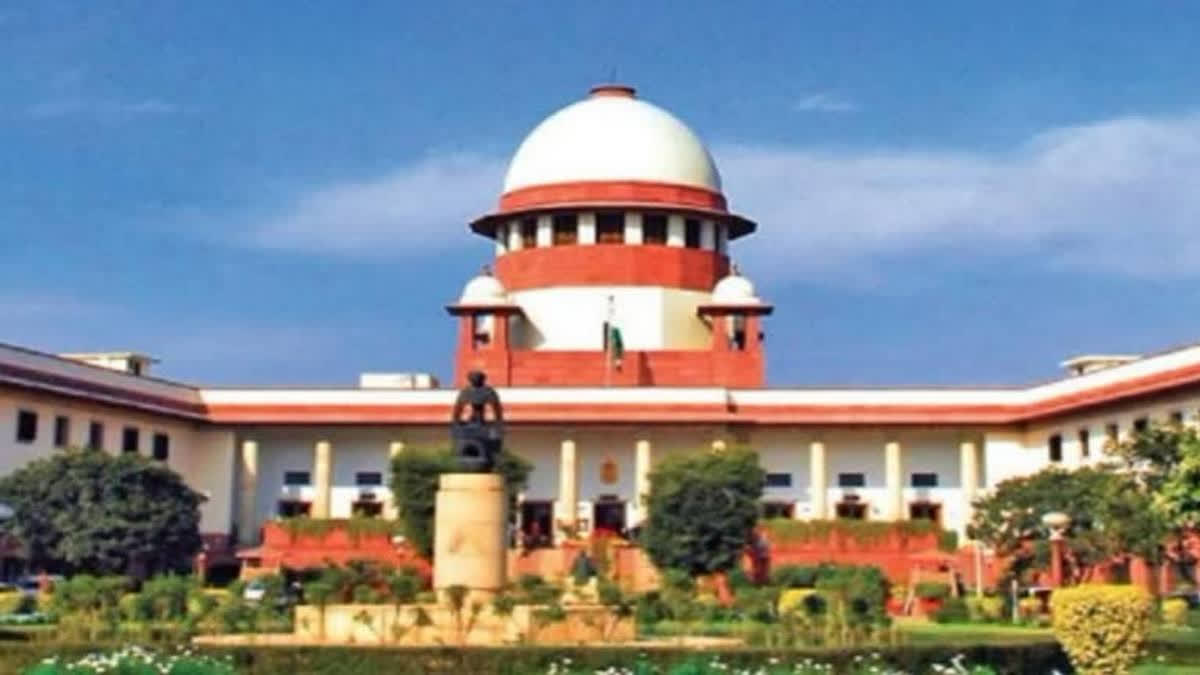New Delhi: BMW, which is known for its premium vehicles, a blend of luxury, innovation and performance, earlier this week was directed by the Supreme Court to pay Rs 50 lakhs compensation to a customer for supplying a defective car in 2009, which led to the registration of a case against the company and its management. The apex court said the company should pay a consolidated amount of Rs 50 lakhs, in full and final settlement of all claims in dispute, to the complainant on or before August 10, 2024.
A three-judge led by Chief Justice of India DY Chandrachud and comprising justices JB Pardiwala and Manoj Misra said, “We are of the considered view that the manufacturer, BMW India Private Limited, should be directed to pay a consolidated amount of Rs 50 lakhs in full and final settlement of all claims in dispute. The manufacturer shall pay this amount to the complainant on or before August 10, 2024, by electronic transfer of funds”. The case was instituted by GVR Infra Projects, which was aggrieved by BMW for supplying a defective car in 2009.
The complainant had purchased a BMW 7 series vehicle on September 25, 2009. The case of the complainant was that on September 29, 2009, while he was driving the vehicle, a serious defect was noticed and the car was taken to the workshop. The car is alleged to have faced a similar problem on November 13, 2009. On November 16, 2009, a complaint was lodged for alleged offences under Sections 418 and 420 of the Indian Penal Code, which led to the registration of the FIR. The manufacturer, Managing Director and other directors were named as the accused.
The Andhra Pradesh High Court in 2012, quashed the criminal proceedings against BMW, but directed the manufacturer to deliver a brand-new BMW vehicle to the complainant in place of the defective one.
The High Court’s order was challenged by Andhra Pradesh and by the complainant, but not by the manufacturer or the directors, who were named as the accused. During the hearing in the apex court, counsel appearing on behalf of the manufacturer and directors submitted that the manufacturer was at all times ready and willing to comply with the order of the High Court and addressed a communication to the complainant calling for the return of the defective vehicle so that a brand-new vehicle could be handed over.
However, by a letter dated July 25, 2012, the complainant informed the manufacturer, through his advocate, that he was not interested in taking a new BMW car, but instead was interested in taking an amount equivalent to the value of the car, together with interest.
The High Court concluded that the ingredients of the offence of cheating were not established based on the contents of the FIR. “Having come to this conclusion, there was no justification for the High Court thereafter to direct the manufacturer to replace a brand new BMW 7 Series vehicle. The High Court had been moved by the manufacturer to quash the complaint under Section 482 of the Code of Criminal Procedure 1973. The High Court was required to address itself to whether a case for quashing was made out”, said the bench, in an order pronounced on July 10.
The apex court noted that the old vehicle had been returned to the erstwhile dealer by the complainant. The apex court said bearing in mind the nature of the dispute, which was confined only to a defective vehicle, “We are of the view that allowing the prosecution to continue, at this stage, nearly 15 years after the dispute arose, would not subserve the ends of justice”. “Instead, by exercising the jurisdiction of this court under Article 142 of the Constitution, substantial justice can be done by directing the payment of compensation to the complainant, while sustaining the order quashing the complaint”, said the bench.
The apex court said in June-July 2012, the manufacturer had offered to replace the old vehicle with a brand-new vehicle. “However, this was not acceded to by the complainant. Had the complainant used the vehicle, it would have depreciated until date," noted the bench.
Disposing of the matter, the bench said, “Conditional on the aforesaid payment being made by the manufacturer to the complainant, the order of the High Court quashing the complaint shall stand and the direction for the replacement of the old vehicle with a brand new vehicle shall stand set aside. The claims of the complainant shall stand duly satisfied on the payment of compensation quantified at Rs 50 lakhs in terms of the above order”.
Read more: 'Seems No One Apprised LG On Court's Permission…': SC On Tree Cutting In New Delhi



